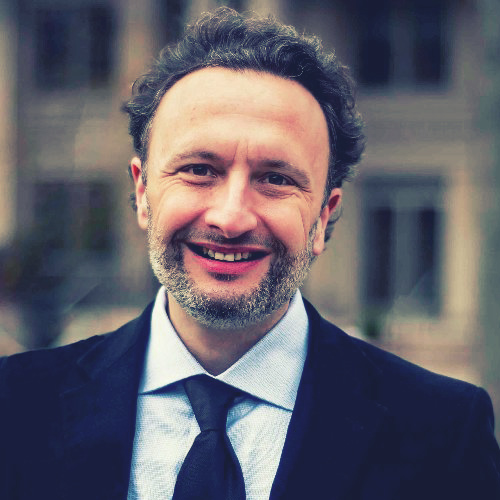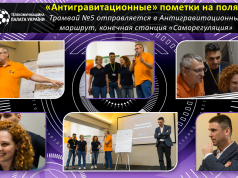Starting in the new academic year, the Ukrainian higher education institutions will introduce a specialty like “cyber security”. The relevant order to approve the standard of the bachelor’s degree specialty has been already drafted and agreed by the National Agency for Quality Assurance in Higher Education.
This was reported by the First Deputy Minister of Education and Science of Ukraine Vladimir Kovtunets, remarking that the new standard would be introduced in the academic year 2017-18.
“Given the Russian aggression, we are in desperate need of cyber security professionals. The approval of the new standard will allow us to train high-level specialists ready to apply their knowledge in practice and respond to the current challenges. A typical educational program has been also elaborated for this purpose”, as Mr. Kovtunets stated.
The decision of the National Agency is very timely, according to experts. In the light of online settlements and payments, broadband Internet, cheap cloud storage and processing technologies, every entity, company and government generate huge data volumes daily. Along with the unique potential to speed up data processing and the task efficiency, it creates a number of problems to protect these data and corporate networks from cybercriminals, as the US edition Daily Dot points out.
“Today, 60% of entities do not have a practical understanding of their applications’ interaction”, as assured by Nathaniel Gleicher, former Cyber Security Policy Director at US National Security Council. “That is to say, they protect an environment that they do not understand, which is a disaster recipe”
The issue of combating security problems originating from the growth of data volumes will be topical at the First Global Cyber Security Summit 2017 to be held in Kyiv on June 14-16.
The search for potentially dangerous activity in data streams within corporate networks is similar to looking for a needle in a haystack. Recent studies have shown that it may take up to six months to detect intrusions into the entities’ system. Meanwhile, system administrators face hundreds and thousands of suspicious activities daily, which, of course, goes beyond their powers.
The situation is aggravated by the fact that the limits of corporate networks are dissolved, and the security perimeters are revised, since more and more entities are opting for cloud environments, rather than local servers and data centers.
“You cannot protect a building if you do not understand where its entrances and exits are. The same happens with the data center security”, as added by Mr. Gleicher, who is now in charge of cyber security strategy at Illumio. He is one of those who will attend the International Summit in Kyiv to share own experience in this area and to discuss possible solutions to address this growing problem with other well-known experts from private and public sectors.
One such solution is using artificial intelligence and machine learning algorithms to detect and block security violations. Unlike analysts and system administrators, who can only monitor a limited number of cyber security violations, these algorithms are capable to analyze millions of events daily and detect patterns remaining missed by people.
“There exist algorithms that can identify groups of similar data elements. Other algorithms can identify very unusual data elements”, as stated by Miranda Mowbray, former Senior Researcher at Hewlett Packard Labs, who will also attend the GCS 2017 in Kyiv.
“Both these algorithms can be used in domain systems to identify computers in corporate networks infected with malicious software. Thus, it is possible to detect the computer with unusual DNS behavior, which allows assuming an infection with a certain or previously unknown malware strain”, as Mrs. Mowbray says.
A number of security solutions providers have been already using the advantages of artificial intelligence in combating cyber threats and attacks. Currently, there are solutions based on behavior analysis, rather than relying on malware detection and static rules, which is the norm for traditional cyber security solutions.
Although the artificial intelligence will not fully replace cyber security analysts, it can greatly facilitate their work. Last year, for example, researchers at MIT Computer Science and CSAIL laboratory designed an artificial intelligence system that uses controlled learning to search for threats and generate threat reports. After analysts’ “teaching” system to identify real security threats and false alarms for several weeks, finally it minimizes the number of false alarms, marking just significant events for system administrators’ further investigation.
To improve the security level in corporate networks, there are studied various methods based on artificial intelligence. However, it is not a universal remedy, and there is still a long way to go.
“There is actually too much noise about it, but if we dig a little deeper, there are very few real cyber security solutions based on artificial intelligence”, as Mr. Gleicher assures. “It can occur on the way of further innovations, but it has not happened yet”.
The GCS has a high level of support in Ukraine, including in partnership with the State Finance Innovation Institution of the Ministry of Economic Development and Trade of Ukraine, the Association IT Ukraine, Hi-Tech Office Ukraine, the Association “Telecommunication Chamber of Ukraine”.
The Global Cyber Security Summit 2017 will be held at the Kyiv Exhibition Center “Parkovy” (Kyiv, Parkova Road, 16-a) on June 14-16.
Speakers at GCS17:
Antony Blinken, First US Deputy Secretary of State and Assistant to US President Barack Obama (2015-2017). Deputy National Security Advisor to Vice President Biden (2013-2015);
Matt Olsen, Co-founder and President of IronNet Cybersecurity. Director of the US National Counterterrorism Center (NCTC) (2011-2014);
Ajit Gaddam, Chief Security Architect at VISA Inc.;
Suzanne Spaulding, Under Secretary for National Protection and Programs Directorate at the US Department of Homeland Security (2014-2017);
Christopher Kirchhoff, Partner at DIUX, Pentagon’s Silicon Valley Office;
Manish Gupta, Founder and CEO of ShiftLeft;
Dr. Gregory Michaelidis, Founder and Director of Security Awareness Lab LLC;
Dan Keyserling, Head of Communications and Senior Advisor at Jigsaw, Alphabet’s Incubator, Google.
Panel discussions:
- Creating the Next Generation of Cyber Security Professionals;
- The Bold New World of IoT Security (Internet of things);
- Artificial Intelligence and Machine learning;
- Securing the Vote: Elections in a Digital World;
- Collaboration and Threat Intelligence Sharing;
- Growing Trends in Automating and Securing Applications;
- From Cyber Security Education to Independent Researches;
- Encrypting the Future.
The official partner of the Summit will be the digital company “The Daily Dot” (USA), which covers the world’s Internet culture and life in the worldwide web.
GCS17 Partners:
- The Ukrainian Chamber of Commerce and Industry;
- The American Chamber of Commerce in Ukraine;
- The Association “Information Technologies of Ukraine”;
- The Association “Telecommunication Chamber of Ukraine”;
- The All-Ukrainian Association “Information Security and Information Technologies”;
- Hi-Tech Office Ukraine.
Contacts of organizers:
VIP-tickets, sponsorship packages, partnership, additional information: info@gcs17.org.
Marina Medinskaya, mmedinskaya@gcs17.org,
Tel: +38 (067) 375-76-37; +38 (95) 356-99-69
Oksana Hahina, ohahina@gcs17.org
Tel: +38 (067) 375-76-37; +38 (95) 356-99-69
Accreditation by link: http://bit.ly/akredGCS17.
Contacts for Media:
Ekaterina Skuridina, cat@dontstop.agency,
Anna Makhankova, ann@dontstop.agency.

























